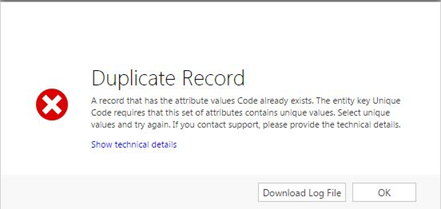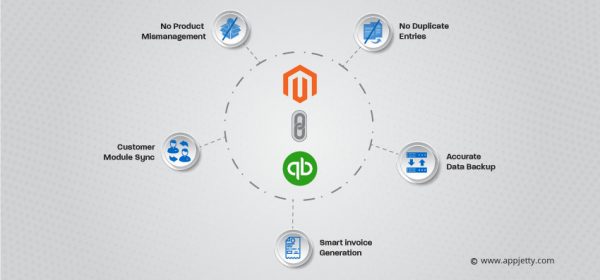As an e-commerce business owner, you constantly have to look after something or the other. Whether you are selling products or services, you have to make sure everything from marketing to delivery runs smoothly. A crucial part of this process is making sure that you keep an account of every sale and add it in the records. This is where accounting software comes in handy. One of the leading accounting software in the market is QuickBooks.
If you want things to run smoothly, you need to have your accounting software up-to-date with all the details that your e-commerce store has, in real time. But in general cases, e-commerce store owners manage two different entities one being the e-commerce store platform like Magento, WooCommerce, or Shopify and second being an accounting software like QuickBooks. This could be slightly cumbersome.
Since you have to maintain both databases day in, day out, minor issues can turn into tedious tasks if you have to attend to it on a daily basis.
We have done insightful research on such tedious tasks and here are some of the issues you can face if you manage an e-commerce store and QuickBooks, separately:
Duplicate Entries:

Imagine that you have a Magento store and you use QuickBooks to manage your accounts. So, every time a sale goes through which definitely comes in through your store, you will have to make a manual entry in QuickBooks. This will surely lead to duplicate entries or some other kinds of errors, related to a simple typing mistake or missing some entries of a customer, accidentally.
Because of duplicate entries, the overview of your sales data won’t be apt and the actions taken based on such data can cause a lot of trouble and loss for your business.
Data Loss:

Sometimes due to a technical error or poor internet connection, there is a chance that your e-store data or QuickBooks data might have not backed up. And in such cases, it can lead to loss of data.
Data loss is one of the most severe problems existing in today’s information era. It can lead to major setbacks in productivity timeline, loss of customer data, etc. You can lose customers too if the data loss turns into a security breach.
Product Mismanagement:
If you do not integrate your accounting software like QuickBooks with your e-commerce store then every time you add or remove a product from your e-store, you will have to do the same manually from the QuickBooks as well.
If you forget to do so, you will not be able to add the new product to an invoice when an order comes in for it. This can lead to an adulterated view of your inventory leading to some bad decisions.
You can solve all the above-mentioned issues very easily by connecting your store and your accounting software. There are many extensions available that lets you integrate QuickBooks with the Magento store. Through such extensions, some of the Magento store modules will integrate via an automated getaway to QuickBooks.
The Magento QuickBooks integration provides a kind of smoothness in business operations that does not come from using those tools separately. When connected, they make your store backend easier to use.
Here are the integrated modules and some of the benefits of this extension:
Customer Module:
After adding this extension to your e-commerce store, you can sync the customer data smoothly with that in the QuickBooks. When you add a new customer to your Magento store, this extension automatically creates a similar customer account in the QuickBooks too, thereby making maintenance of every customer’s accounts effortless.
Product Module:
Just like the customer module, when you add a new product to your Magento store, the extension syncs the product data with the QuickBooks inventory list, at the same time. This makes it simple when it comes to making invoices because you will need to be able to add products from your updated product list.
Moreover, this extension also gives a proper overview of the inventory.
Invoice Module:
This module, in general, lets the user generate an invoice for each customer. When a customer purchases something, your Magento store generates an order, in the backend. Then that order transfers to QuickBooks, which creates an unpaid invoice for the same. Since your Magento store and your QuickBooks account share the customer database and product inventory, this happens seamlessly. Once that the customer pays the invoice, its status changes to paid in both QuickBooks and your Magento backend.
Credit Memo Module:
This is for when you have to give a refund to a customer. When a customer chooses to return a product, you can create a credit memo from your Magento backend, which will create the same in your QuickBooks.
Accurate Data Backup:
With the such Magento QuickBooks Integration gateway, even if one or both of your platforms have some issue, you will not lose any data. The Magento QuickBooks extension will be able to fetch your data and create a backup keeping it secure.
Summing it up…
These features of the Magento QuickBooks extension make maintaining all your records hassle free. Everything runs smoothly and you can work more efficiently without having to worry about little errors that can disrupt your entire workflow.
All product and company names are trademarks™, registered® or copyright© trademarks of their respective holders. Use of them does not imply any affiliation with or endorsement by them.





